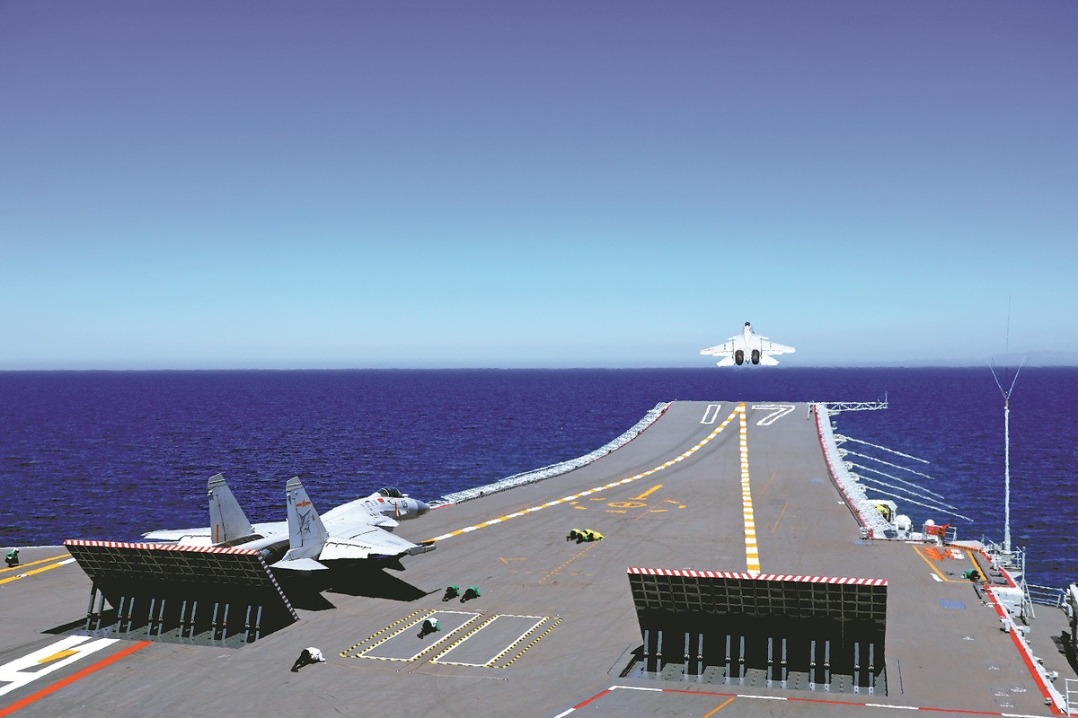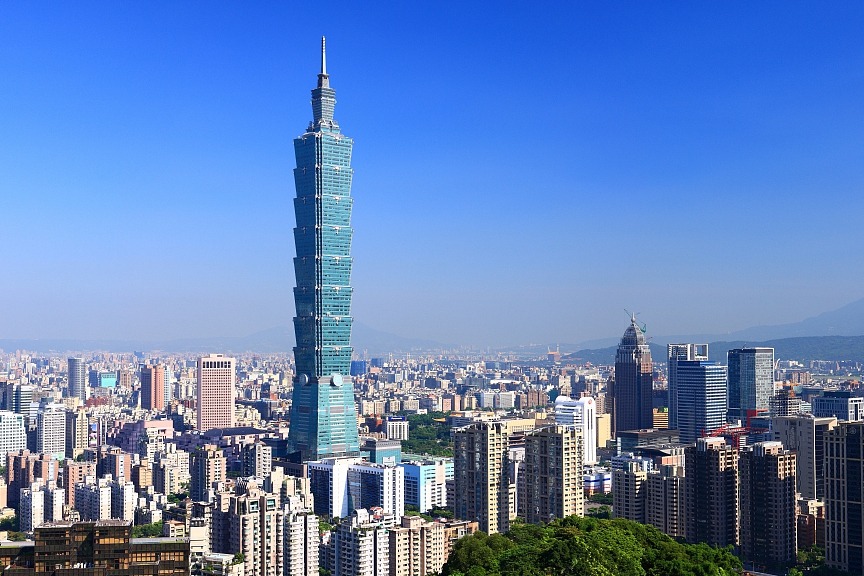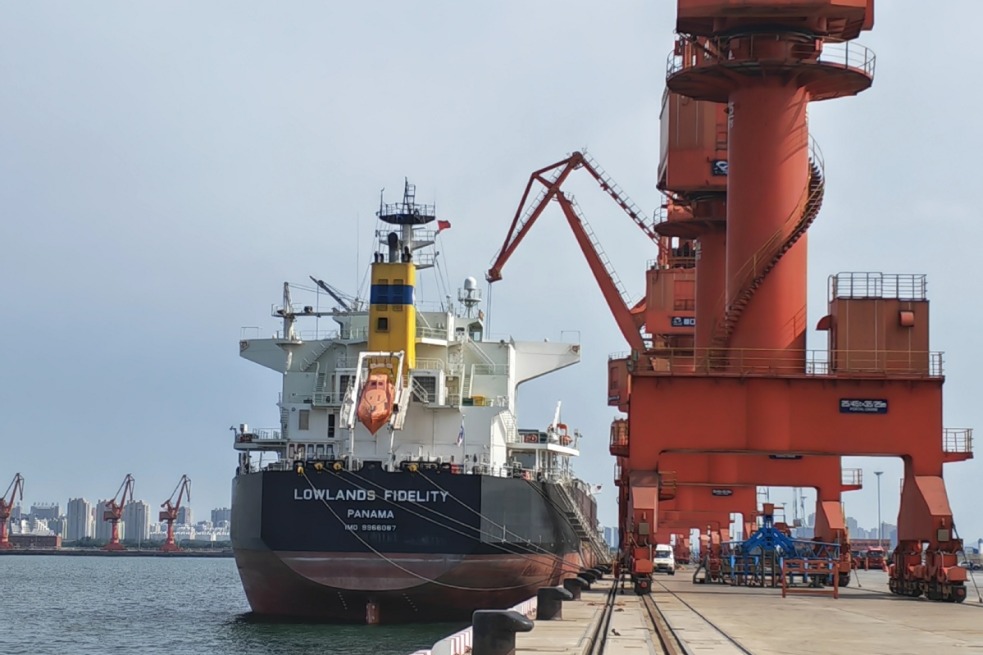World must heed the lessons of the Korean War


Seventy-five years ago on June 25, the Korean War (1950-53) broke out. It stood as a defining case of great power rivalry during the early days of the Cold War. The Korean Armistice Agreement not only militarily demarcated the Korean Peninsula but also institutionalized an incomplete peace agreement — one perpetually overshadowed by great power competition in Northeast Asia.
The war highlighted three major traps in great power rivalry. The first is the "proxy war" trap. What appeared to be a conflict on the Korean Peninsula was actually a "proxy war" between the United States and the Soviet Union. The Soviet Union intervened indirectly through the Democratic People's Republic of Korea, while China sent the Chinese People's Volunteers to fight, in order to protect the country's national security needs.
This model persists to this day, with proxy wars unfolding in places such as Ukraine and the Middle East, where smaller nations are forced to bear the cost of great power competition.
The second is the "security dilemma". When US forces crossed the 38th Parallel and advanced toward the Yalu River in Northeast China, China was compelled to intervene to "resist US aggression, aid Korea and defend the homeland". The US misinterpreted China's response as mere bluff.
Similar misjudgments continue to escalate tensions in the South China Sea and the Taiwan Strait today. The US' strengthening of its "Indo-Pacific alliances" is, in fact, a strategic encirclement of China, pushing the two sides into a vicious cycle of "action and counteraction".
The third is the "multilateral mechanism failure dilemma". By manipulating the then UN Security Council to legitimize its military operations on the Korean Peninsula, the US showed international institutions could be misled by major powers, a phenomenon which continues to this day. The current United Nations is often becomes paralyzed due to the veto power of major powers, the dispute settlement mechanism of the World Trade Organization is stalled, and multiple international organizations have seen a decline in credibility due to major powers "withdrawing" from them, highlighting the diminishing effectiveness of the global governance due to some big powers' manipulation.
The Korean War was a localized eruption of what is referred to as the "Thucydides Trap" because the US viewed the People's Republic of China as the vanguard of "communist expansion", while China saw the US crossing the border as a continuation of imperialist aggression. The ideological confrontation heightened the security dilemma, making China's involvement in the war unavoidable.
In reality, there is no such thing as a "Thucydides Trap", but when great powers repeatedly commit strategic misjudgments, they lay a trap for themselves. The US' advance beyond the 38th Parallel despite China's multiple warnings was a classic case of strategic miscalculation. Similar risks are re-emerging in the Asia-Pacific today. The US views China's normal military development as a challenge to its global hegemony, while some Western politicians have been hyping up the "China threat "theory and attempting to explore the Taiwan question, increasing the risk of misjudgments.
Given the sheer power of both China and the US, any conflict will come at a catastrophic cost. On the other hand, China emphasizes peace and development and calls for resolving disputes through cooperation, not war. To avoid the misjudgment trap, great powers need to address their contradictions. As for China and the US, the rational understanding at leadership level can prevent them from falling into any misjudgment traps.
Amid the Russia-Ukraine conflict, Russia's plan to establish a 60-80-kilometer buffer zone has brought an ancient geopolitical concept back into global focus. According to international political theory, an effective buffer zone must meet at least two conditions. It must result from the mutual consent of both sides, and a distinction must be made between nominal and effective buffer zones, which are of two types: buffer states and internal buffer zones.
The 38th Parallel evolved from a military demarcation line into the front line of the Cold War, revealing the rules that determine the success or failure of buffer zone mechanisms: unilaterally created buffer zones ultimately fail.
The demilitarized zone established by the 1953 Korean Armistice Agreement became a mere physical gap for military confrontation rather than a bridge for building mutual trust, because it lacked political reconciliation. Today, the Korean Peninsula's deadlock has become even more complex. The Democratic People's Republic of Korea's nuclear capability has disrupted the strategic balance, the joint military exercises of the US and the Republic of Korea continue to put pressure on the DPRK, and the Six-Party Talks mechanism has been stalled. As such, the DPRK and the ROK need to boost economic and cultural exchanges to reduce the chances of a military conflict.
China's concept of win-win cooperation has gained broad support, especially in the Asia-Pacific, because when countries are interwoven into deeply interconnected networks of shared interests, geographical separation is replaced by systemic mutual trust. This is the deeper logic of a community with a shared future for humankind.
The world is undergoing a profound transformation. Technological revolutions have exponentially increased the cost of war, globalization has forged the spirit of shared human survival, and multipolarism demands new mechanisms for power-sharing.
The fact that the Korean Peninsula still doesn't have a proper peace agreement shows a divided regional or global order is ultimately unsustainable. The strengthening military alliance of the US, Japan and the ROK, combined with the DPRK's frequent nuclear and missile tests, has heightened the risk of a regional conflict. To avoid a conflict, the countries need to adopt a new security vision, which China's proposal for building an Asia-Pacific community with a shared future offers.
With the shadow of war looming over the world and climate change disregarding national borders, shared security is the only rational choice for countries today. Standing at the historical juncture of the 75th anniversary of the outbreak of the Korean War, the world must heed the lessons written in blood and sacrifice.
The author is an associate professor and a researcher with the National Defense University of the Chinese People's Liberation Army.
The views don't necessarily reflect those of China Daily.
If you have a specific expertise, or would like to share your thought about our stories, then send us your writings at opinion@chinadaily.com.cn, and comment@chinadaily.com.cn.


































